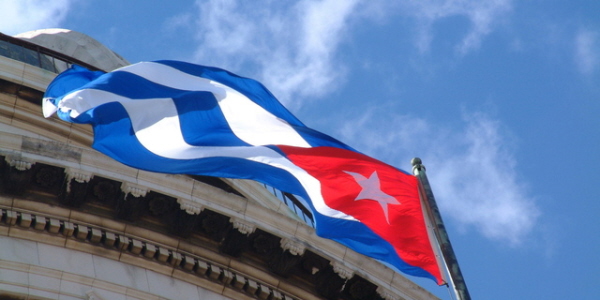With the recent news that the U.S. and Cuban governments are re-opening embassies in each other’s capital cities, the possibility that the U.S. and Cuba will eventually normalize economic relations with each other grows more promising. For a Millennial that has always thought of Cuba as a political, economic, and cultural relic of Communism and the Cold War, the thought of being able to travel to Cuba, walk in the footsteps of Hemingway, and see where The Big One almost went down is as exciting as it is refreshing. But let’s be real for a moment.
Although U.S. and Cuba relations have improved, they still have some economic and political issues to reconcile. For starters, the U.S. Department of Treasury still maintains a number of economic sanctions on Cuba, generally prohibiting the export or import of goods to or from the Caribbean island nation. When (if?) these sanctions are lifted, Chief Procurement Officers (CPOs) seeking to conduct business in Cuba with Cuban enterprises will have to contend with numerous challenges (and opportunities, for sure) before sailing their business plan 90 miles from Florida. Here are just a few of the issues that CPOs and other supply management leaders will have to consider:
Compatibility of Processes and Systems
For a number of reasons, Cuban enterprises likely do not have many B2B processes or systems that are readily compatible with those from Western enterprises – whether it is because of the state of its economy, technological infrastructure, access to Western IT products, or cultural differences. Although insight into Cuban businesses and economics is limited, Western enterprises interested in doing business with Cuban firms may have to contend with manual and paper-based processes that are inefficient and move at glacial speed. Communist economies are not known for speed, innovation, efficiency, or agility, and Western enterprises may be entering a time warp when they land in Havana.
Supplier and Supply Risks
A lack of familiarity with Cuban suppliers, human rights concerns, and the fact that Cuba is located within a region prone to hurricanes and tropical storms all make it a risky market for Western enterprises. Let’s take it from the top.
For roughly 55 years, American enterprises and citizens have been banned from conducting business in Cuba or with Cuban enterprises, and their knowledge of Cuban suppliers is thus very limited. Which suppliers are quality suppliers and which ones are not? Which ones are competitive and which ones are not? American enterprises will have to take supplier discovery to the next level, perhaps by reaching out to Western organizations whose countries have had diplomatic and economic relations with Cuba, and “picking their brains” on supplier markets. Relationships must start somewhere, and for American enterprises looking to conduct business in Cuba, there is no better time to start surveying suppliers than now.
Another risk to consider is that Cuba has long been criticized for its human rights record and persecution of political opponents, and it continues today. Although the U.S. Department of State recently removed Cuba from its list of state sponsors of terrorism, it continues to have serious concerns about how the government treats its own citizens. Moreover, concerns about child labor, human trafficking, slave labor, and unsafe labor practices dog Cuba. Although similar concerns do not prevent American enterprises from conducting business in other countries with, shall we say, questionable human rights records (e.g., China, Myanmar, Saudi Arabia), it should at least give CPOs some pause when considering Cuba.
Lastly, Cuba resides firmly inside the Caribbean and is thus prone to tropical storms and hurricanes for much of the year. As a result, there are weather-related risks to consider, as well. A robust supplier intelligence capability, alternative suppliers, contingency plans, and a strong insurance policy would all be handy tools in a CPO’s or supply chain manager’s toolbox.
Conclusion
Admittedly, we are just scratching the surface with this piece. Although it is an exciting proposition to consider now that diplomatic relations between the U.S. and Cuba are being reestablished and travel restrictions between the two countries are being relaxed, there is much to consider. What did we miss? Let us know and join in on the discussion!
RELATED ARTICLES
Visibility: What Does it Mean for Suppliers?
Three Sourcing Tools to Aid Supplier Discovery
ISM at 100: Robert Gates on Global Stability and Supply Risk

